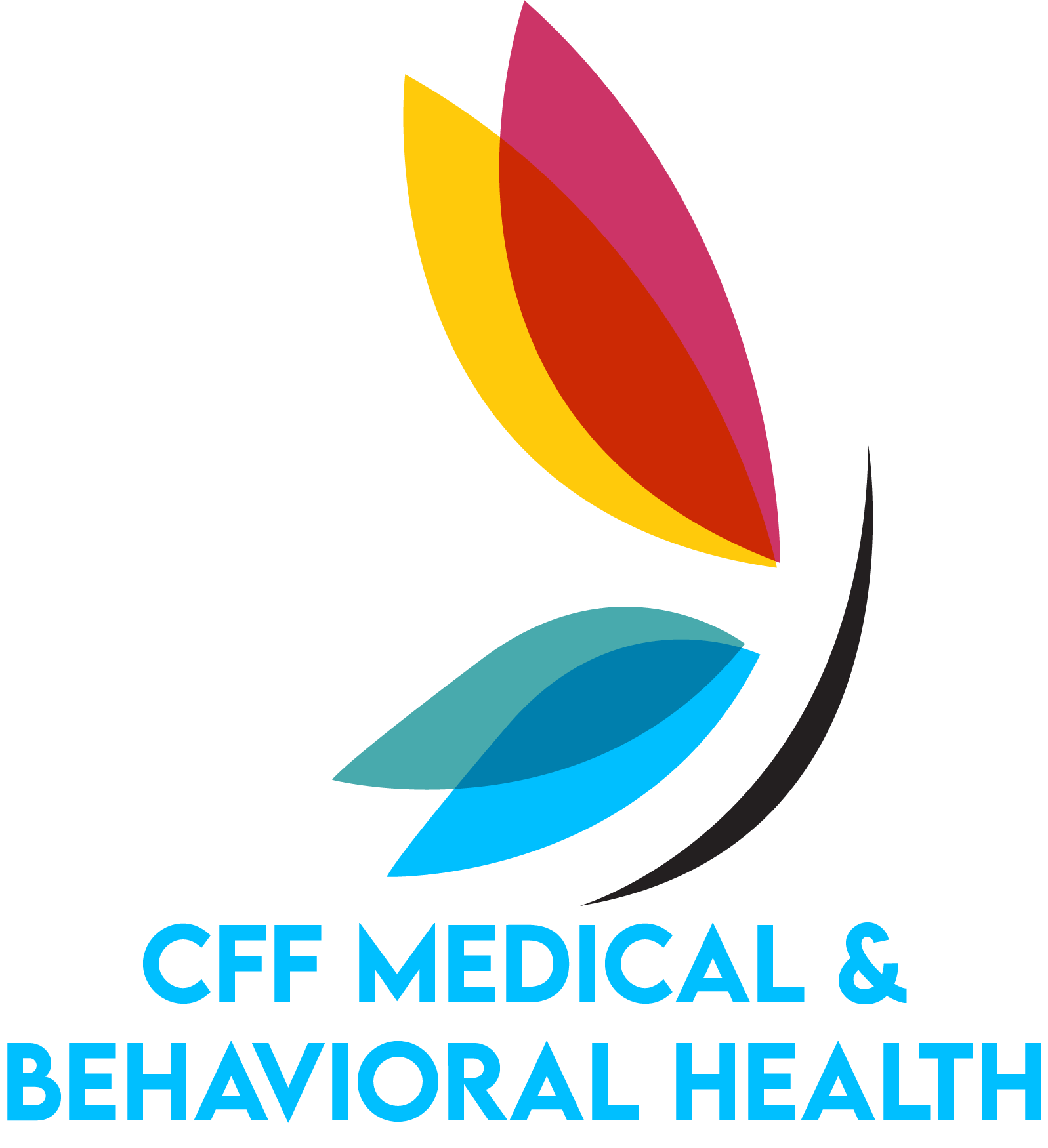Understanding Borderline Personality Disorder
What is Borderline Personality Disorder (BPD)?
Borderline Personality Disorder (BPD) is a complex mental health condition characterized by pervasive instability in moods, behavior, self-image, and functioning. Individuals with BPD often experience intense episodes of anger, depression, and anxiety that can last from a few hours to several days. This disorder can significantly impact relationships, work, and self-identity.
BPD is part of the Cluster B personality disorders, which also include antisocial, histrionic, and narcissistic personality disorders. These disorders are marked by dramatic, overly emotional, or unpredictable thinking or behavior. Understanding BPD is crucial for providing effective treatment and support for those affected.
Common Symptoms of Borderline Personality Disorder
Individuals with BPD may exhibit a range of symptoms that can vary in intensity and duration. Recognizing these symptoms is essential for diagnosis and treatment. Here are some common symptoms associated with BPD:
- Emotional Instability: Rapid mood swings and intense emotional reactions.
- Fear of Abandonment: Extreme efforts to avoid real or imagined abandonment.
- Unstable Relationships: Alternating between idealization and devaluation of others.
- Distorted Self-Image: Unstable sense of self and self-worth.
- Impulsive Behaviors: Engaging in risky behaviors such as substance abuse, reckless driving, or binge eating.
- Self-Harm: Suicidal threats, gestures, or self-injurious behaviors.
- Chronic Feelings of Emptiness: Persistent feelings of being empty or void.
- Intense Anger: Difficulty controlling anger and frequent outbursts.
- Paranoia or Dissociation: Stress-related paranoid thoughts or severe dissociative symptoms.
| Symptom | Description |
|---|---|
| Emotional Instability | Rapid mood swings and intense emotional reactions |
| Fear of Abandonment | Extreme efforts to avoid real or imagined abandonment |
| Unstable Relationships | Alternating between idealization and devaluation of others |
| Distorted Self-Image | Unstable sense of self and self-worth |
| Impulsive Behaviors | Engaging in risky behaviors such as substance abuse, reckless driving, or binge eating |
| Self-Harm | Suicidal threats, gestures, or self-injurious behaviors |
| Chronic Feelings of Emptiness | Persistent feelings of being empty or void |
| Intense Anger | Difficulty controlling anger and frequent outbursts |
| Paranoia or Dissociation | Stress-related paranoid thoughts or severe dissociative symptoms |
Understanding these symptoms can help in identifying the need for professional mental health treatment. For more information on recognizing when to seek help, visit our article on signs you may need professional mental health treatment.
Effective treatment for BPD often involves a combination of therapy and medication. To learn more about the different therapeutic approaches, check out our article on the role of therapy in treating anxiety depression and ptsd.
Diagnosis and Treatment
Diagnosing Borderline Personality Disorder
Diagnosing Borderline Personality Disorder (BPD) involves a comprehensive evaluation by a mental health professional. This evaluation typically includes a detailed interview, psychological assessments, and a review of the individual’s medical history. The goal is to identify the presence of BPD symptoms and differentiate them from other mental health conditions.
The Diagnostic and Statistical Manual of Mental Disorders (DSM-5) outlines the criteria for diagnosing BPD. According to the DSM-5, an individual must exhibit at least five of the following symptoms:
- Intense fear of abandonment
- Unstable relationships
- Identity disturbance
- Impulsivity in at least two areas that are potentially self-damaging
- Recurrent suicidal behavior or self-harm
- Emotional instability
- Chronic feelings of emptiness
- Inappropriate, intense anger
- Transient, stress-related paranoid ideation or severe dissociative symptoms
| Symptom | Description |
|---|---|
| Fear of Abandonment | Intense fear of being left alone or abandoned |
| Unstable Relationships | Alternating between idealization and devaluation in relationships |
| Identity Disturbance | Unstable self-image or sense of self |
| Impulsivity | Engaging in potentially self-damaging behaviors (e.g., spending, sex, substance abuse) |
| Suicidal Behavior | Recurrent suicidal behavior, gestures, or threats, or self-mutilating behavior |
| Emotional Instability | Marked mood swings and emotional reactions |
| Chronic Emptiness | Persistent feelings of emptiness |
| Intense Anger | Inappropriate, intense anger or difficulty controlling anger |
| Paranoid Ideation | Transient, stress-related paranoid thoughts or severe dissociative symptoms |
For more information on recognizing the signs that you may need professional mental health treatment, visit our article on signs you may need professional mental health treatment.
Treatment Approaches for Borderline Personality Disorder
Treating Borderline Personality Disorder requires a multifaceted approach that often includes therapy, medication, and self-care strategies. The primary goal of treatment is to help individuals manage their symptoms, improve their quality of life, and develop healthier coping mechanisms.
Therapy
Therapy is a cornerstone of BPD treatment. Several therapeutic approaches have proven effective in managing BPD symptoms:
- Dialectical Behavior Therapy (DBT): Focuses on teaching skills to manage emotions, reduce self-destructive behaviors, and improve relationships.
- Cognitive Behavioral Therapy (CBT): Helps individuals identify and change negative thought patterns and behaviors.
- Schema-Focused Therapy: Aims to identify and modify deeply ingrained patterns or themes in thinking and behavior.
For more details on how therapy can help with mental health conditions, visit our article on the role of therapy in treating anxiety depression and ptsd.
Medication
While there is no specific medication for BPD, certain medications can help manage symptoms such as mood swings, depression, and anxiety. Commonly prescribed medications include antidepressants, mood stabilizers, and antipsychotics. It’s important to work closely with a healthcare provider to determine the most appropriate medication regimen. For more information, visit our article on medication vs. therapy: which is best for mental health treatment?.
Self-Care and Coping Strategies
In addition to therapy and medication, self-care and coping strategies play a vital role in managing BPD. These strategies may include mindfulness practices, stress management techniques, and building a strong support network. For more tips on managing mental health, visit our article on holistic approaches to mental health: alternative therapies that work.
By understanding the diagnosis and treatment options for Borderline Personality Disorder, individuals can take proactive steps towards managing their condition and improving their overall well-being.
Therapy Options
When it comes to treating Borderline Personality Disorder (BPD), therapy plays a crucial role. At CFF Medical & Behavioral Health in Columbus, OH, we offer a range of therapeutic options tailored to meet the unique needs of individuals with BPD. Here, we explore three effective therapy options: Dialectical Behavior Therapy (DBT), Cognitive Behavioral Therapy (CBT), and Schema-Focused Therapy.
Dialectical Behavior Therapy (DBT)
Dialectical Behavior Therapy (DBT) is a highly effective treatment specifically designed for individuals with BPD. DBT combines cognitive-behavioral techniques with mindfulness practices to help individuals manage their emotions, reduce self-destructive behaviors, and improve relationships.
Key components of DBT include:
- Mindfulness: Enhancing awareness and acceptance of the present moment.
- Distress Tolerance: Developing skills to cope with and tolerate distress.
- Emotion Regulation: Learning to manage and change intense emotions.
- Interpersonal Effectiveness: Improving communication and relationship skills.
DBT is typically delivered through individual therapy sessions, group skills training, and phone coaching. This comprehensive approach helps individuals build a life worth living by addressing the core symptoms of BPD.
Cognitive Behavioral Therapy (CBT)
Cognitive Behavioral Therapy (CBT) is another effective treatment for BPD. CBT focuses on identifying and changing negative thought patterns and behaviors that contribute to emotional dysregulation and interpersonal difficulties.
Key components of CBT include:
- Cognitive Restructuring: Identifying and challenging distorted thoughts.
- Behavioral Activation: Engaging in activities that promote positive emotions.
- Problem-Solving: Developing strategies to address specific problems.
- Exposure Therapy: Gradually facing feared situations to reduce anxiety.
CBT helps individuals with BPD develop healthier thinking patterns and coping mechanisms. For more information on how CBT can help with various mental health conditions, visit our article on how cognitive behavioral therapy (cbt) helps with anxiety & depression.
Schema-Focused Therapy
Schema-Focused Therapy is a form of psychotherapy that combines elements of CBT with other therapeutic approaches to address deeply ingrained patterns of thinking and behavior, known as schemas. These schemas often develop early in life and can contribute to the symptoms of BPD.
Key components of Schema-Focused Therapy include:
- Identifying Maladaptive Schemas: Recognizing and understanding negative patterns.
- Cognitive Techniques: Challenging and changing distorted thoughts.
- Experiential Techniques: Using imagery and role-playing to process emotions.
- Behavioral Techniques: Developing new, healthier behaviors.
Schema-Focused Therapy aims to help individuals with BPD break free from these negative patterns and develop a more positive and adaptive way of thinking and behaving.
At CFF Medical & Behavioral Health, we understand the complexities of BPD and offer personalized treatment plans to help individuals manage their symptoms and improve their quality of life. If you or someone you know is struggling with BPD, seeking professional help is essential. For more information on the importance of seeking professional help, visit our article on signs you may need professional mental health treatment.
Medication Management
Role of Medication in Treating BPD
Medication can play a significant role in the treatment of Borderline Personality Disorder (BPD). While there is no specific medication approved solely for BPD, various medications can help manage symptoms such as mood swings, depression, and anxiety. Medications are often used in conjunction with therapy to provide a comprehensive treatment plan. Our approach at CFF Medical & Behavioral Health in Columbus, OH, emphasizes the importance of a balanced treatment strategy that includes both medication and therapeutic interventions.
Commonly Prescribed Medications for BPD
Several types of medications are commonly prescribed to help manage the symptoms of BPD. These medications can be categorized into different classes, each targeting specific symptoms. Below is a table summarizing the commonly prescribed medications for BPD:
| Medication Class | Purpose | Examples |
|---|---|---|
| Antidepressants | Manage depression and anxiety | SSRIs, SNRIs |
| Mood Stabilizers | Control mood swings and impulsivity | Lithium, Valproate |
| Antipsychotics | Reduce symptoms of anger and paranoia | Olanzapine, Risperidone |
| Anxiolytics | Alleviate anxiety symptoms | Benzodiazepines |
It’s important to note that medication management should be tailored to the individual’s specific needs and symptoms. Regular consultations with a mental health professional are essential to monitor the effectiveness of the medication and make any necessary adjustments. For more information on the role of medication in mental health treatment, visit our article on medication vs. therapy: which is best for mental health treatment?.
At CFF Medical & Behavioral Health, we understand the complexities of BPD and are committed to providing personalized care. If you or someone you know is struggling with BPD, seeking professional help is crucial. Learn more about the signs you may need professional mental health treatment and how we can support you on your journey to wellness.
Self-Care and Coping Strategies
Importance of Self-Care for Individuals with BPD
Self-care is crucial for individuals with Borderline Personality Disorder (BPD). It involves taking steps to maintain physical, emotional, and mental well-being. Regular self-care can help manage symptoms, reduce stress, and improve overall quality of life. For those with BPD, self-care practices can provide stability and a sense of control.
Self-care activities can include:
- Regular exercise
- Healthy eating habits
- Adequate sleep
- Mindfulness and relaxation techniques
- Engaging in hobbies and interests
Understanding the importance of self-care can empower individuals with BPD to take proactive steps in managing their condition. For more information on recognizing when professional help is needed, visit our article on signs you may need professional mental health treatment.
Coping Strategies for Managing BPD Symptoms
Managing BPD symptoms can be challenging, but there are effective coping strategies that can help. These strategies can reduce the intensity of symptoms and improve emotional regulation.
Mindfulness and Meditation
Practicing mindfulness and meditation can help individuals stay grounded and present. These techniques can reduce emotional reactivity and improve self-awareness.
Journaling
Writing down thoughts and feelings can provide an outlet for emotions and help identify patterns in behavior. Journaling can also serve as a tool for reflection and self-discovery.
Support Networks
Building a strong support network of friends, family, and mental health professionals can provide emotional support and practical assistance. Engaging with support groups can also offer a sense of community and understanding.
Healthy Boundaries
Setting and maintaining healthy boundaries is essential for individuals with BPD. This can involve learning to say no, recognizing personal limits, and protecting one’s emotional well-being.
Stress Management Techniques
Incorporating stress management techniques such as deep breathing exercises, progressive muscle relaxation, and yoga can help reduce anxiety and improve emotional stability.
| Coping Strategy | Description |
|---|---|
| Mindfulness and Meditation | Techniques to stay present and reduce emotional reactivity |
| Journaling | Writing down thoughts and feelings for reflection |
| Support Networks | Building a network of supportive individuals |
| Healthy Boundaries | Setting limits to protect emotional well-being |
| Stress Management Techniques | Practices like deep breathing and yoga to reduce stress |
For more detailed information on therapy options that can aid in managing BPD, visit our article on the role of Therapy in treating anxiety depression and ptsd.
By incorporating these self-care and coping strategies, individuals with BPD can better manage their symptoms and improve their overall well-being. For additional resources and support, consider exploring our articles on how to choose the right mental health provider for your needs and holistic approaches to mental health: alternative therapies that work.
Seeking Help and Support
Importance of Seeking Professional Help
Understanding Borderline Personality Disorder (BPD) and its symptoms is crucial, but seeking professional help is equally important. Professional mental health services provide the necessary support and treatment to manage BPD effectively. At CFF Medical & Behavioral Health in Columbus, OH, we offer comprehensive mental health, behavioral health, and substance use treatment services tailored to individual needs.
Professional help is vital for several reasons:
- Accurate diagnosis: Mental health professionals can provide a precise diagnosis, distinguishing BPD from other conditions.
- Personalized treatment plans: Professionals develop customized treatment plans that may include therapy, medication, or a combination of both.
- Ongoing support: Regular sessions with a therapist or counselor offer continuous support and adjustments to treatment as needed.
For more information on recognizing when to seek professional help, visit our article on signs you may need professional mental health treatment.
Resources and Support for Individuals with BPD
Finding the right resources and support systems is essential for managing BPD. At CFF Medical & Behavioral Health, we provide a range of services and resources to help individuals with BPD lead healthier lives.
Therapy and Counseling
Therapy is a cornerstone of BPD treatment. We offer various therapeutic approaches, including:
- Dialectical Behavior Therapy (DBT)
- Cognitive Behavioral Therapy (CBT)
- Schema-Focused Therapy
Medication Management
Medication can be an effective part of BPD treatment. Our professionals work closely with patients to determine the best medication options. For more details, read our article on medication vs. therapy: which is best for mental health treatment?.
Support Groups
Support groups provide a community of individuals who understand the challenges of living with BPD. These groups offer a safe space to share experiences and coping strategies.
Educational Resources
We provide educational materials to help individuals and their families understand BPD better. Knowledge empowers patients to take an active role in their treatment.
Crisis Intervention
In times of crisis, immediate support is crucial. Our crisis intervention services ensure that individuals receive the help they need promptly.
| Resource Type | Description |
|---|---|
| Therapy and Counseling | Individual and group therapy sessions tailored to BPD |
| Medication Management | Personalized medication plans and monitoring |
| Support Groups | Peer support and shared experiences |
| Educational Resources | Information on BPD and coping strategies |
| Crisis Intervention | Immediate support during emergencies |
For more information on choosing the right mental health provider, visit our article on how to choose the right mental health provider for your needs.
At CFF Medical & Behavioral Health, we are committed to providing the highest quality care for individuals with BPD. Our comprehensive services and dedicated professionals are here to support you every step of the way.








